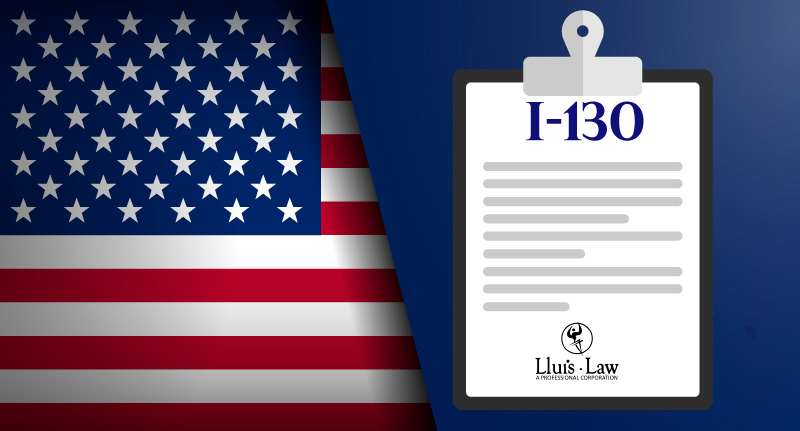Understanding the Importance of Clarifying Information When Filing Form I-130
When it comes to filing Form I-130, Petition for Alien Relative, clarity and completeness in filling out the application cannot be overstated. The United States Citizenship and Immigration Services (USCIS) relies heavily on the information provided to process family-based immigration petitions efficiently. One common area where petitioners may encounter issues is the marital status and history section relating to the beneficiary, particularly when the beneficiary has never been married before. Leaving sections blank or omitting explanations can lead to Requests for Evidence (RFE), causing delays and complications in the immigration process.
This article serves as a comprehensive guide explaining why it is always better to clarify details rather than leaving sections blank in Form I-130, specifically addressing the scenario where the beneficiary has never been married before. By the end of this discussion, petitioners will be equipped with knowledge to avoid common pitfalls and streamline their petitions effectively.
Overview of Form I-130 and Its Purpose
Form I-130, entitled "Petition for Alien Relative," is used by U.S. citizens and lawful permanent residents to establish the existence of a qualifying family relationship with certain foreign relatives who wish to immigrate to the United States. The form is a critical initial step in family-sponsored immigration procedures.
The purpose of the form is to demonstrate that the petitioner has a legitimate familial relationship with the beneficiary, thus making the beneficiary eligible for a visa category based on that relationship. The form collects vital information including personal details, relationship history, and evidence supporting the petition.
Why Clarity is Crucial When Completing Form I-130
USCIS adjudicators depend on clear, accurate, and comprehensive information to assess the validity of the relationship and compliance with immigration laws. Any ambiguity or missing information can trigger requests for additional evidence, known as RFEs, which can prolong the approval process.
An RFE not only delays processing but can also create confusion or suspicion about the petition's validity. Therefore, transparency upfront helps USCIS process petitions smoothly and efficiently.
Addressing Marital History of the Beneficiary
One section of Form I-130 requires detailed information about the marital history of the beneficiary, including previous marriages, divorces, or annulments. This information is significant because it impacts which documents are necessary to submit alongside the petition, such as divorce decrees or annulment certificates.
When the beneficiary has a marital history, failure to provide necessary termination documents for previous marriages can result in an RFE. However, when the beneficiary has never been married before, petitioners often become uncertain whether to leave sections blank or write something to that effect. USCIS guidelines indicate that they do not expect termination documents if there are no prior marriages, but complete silence or blank fields may raise questions.
The Risk of Leaving Sections Blank
Leaving a section blank, particularly about marital history, may implicitly signal missing information or an oversight. USCIS officers, in reviewing the initial application, may view blank fields as incomplete applications, thereby issuing an RFE asking for clarification. This meticulous scrutiny is a safeguard against fraudulent or inaccurate petitions.
While it might be tempting to leave fields blank when no information applies, such practice can actually invite unnecessary delays or complications. Therefore, petitioners should proactively address the issue through a brief explanatory statement.
Best Practice: Providing a Clear Explanation
The most effective method to avoid RFEs related to marital status is to include a concise, clear statement explaining the beneficiary’s history. If the beneficiary has never been married, a short note uploaded with the petition stating something akin to, "The beneficiary has never been married before, therefore no termination documents exist," suffices.
This straightforward statement serves several critical purposes:
- It shows transparency by proactively addressing potential questions.
- It completes the application record, leaving no ambiguity regarding the beneficiary’s marital history.
- It helps keep the case moving smoothly, minimizing the chance of RFEs and related delays.
How to Include an Explanatory Note Effectively
Including an explanatory note does not require complex legal language or lengthy statements. It is important that the note be clear, formal, and attached appropriately with the Form I-130 petition package.
Here are steps to ensure proper inclusion:
- Draft a short statement such as: "The beneficiary has never been married before; therefore, no termination documents exist."
- Attach the note as a cover letter or as supplemental evidence when submitting the petition online or by mail.
- Label the attached document clearly, for example: "Explanatory Note Regarding Marital History of the Beneficiary."
- Ensure that all other sections of the form are completely and accurately filled out.
- Keep a copy of the note with your records and submission package.
Additional Tips to Avoid Processing Delays
Besides clarifying marital history, petitioners can take other proactive steps to improve the chances of prompt processing of Form I-130 petitions:
- Double-check all entries for accuracy and completeness.
- Include all required supporting documents as specified by USCIS.
- Review USCIS instructions carefully for the particular form edition and filing year (such as the 2025 edition).
- Consider consulting an immigration attorney or accredited representative for guidance.
- Maintain organized copies of all submissions for reference.
Understanding USCIS Requests for Evidence (RFE)
An RFE is a formal request from USCIS for additional documentation or clarification when the initial submission is incomplete or unclear. While RFEs are common in immigration cases, receiving one is often disruptive and prolongs the timeline for petition approval.
In the context of marital history, RFEs might request divorce decrees, annulment certificates, or, if missing, an explanation of why no such documents are being submitted.
By proactively including the explanatory note about the beneficiary’s never-married status, petitioners markedly reduce the risk of receiving RFEs related to this issue.
Case Studies Illustrating the Importance of Clarification
Numerous case examples reinforce the significance of submitting complete information. For instance, a petitioner who failed to clarify the beneficiary’s blank marital status section was issued an RFE seeking confirmation and explanations. Upon submission of a simple explanatory note, the case advanced without further issues.
Conversely, some petitions left marital history fields blank without explaining, resulting in prolonged processing times and additional document requests from USCIS. These delays could have been avoided through clear and concise disclosure.
Legal and Procedural Implications
Accurately representing the beneficiary’s marital history complies with both procedural norms and legal requirements of immigration petitions. Misrepresentation or omission, even if unintentional, can jeopardize the petition status and lead to adverse outcomes.
Therefore, it is in the best interest of petitioners and beneficiaries to maintain transparency and diligence in completing Form I-130, fostering trust with USCIS adjudicators.
Summary of Key Recommendations
To ensure a smooth and effective Form I-130 filing, especially when the beneficiary has never been married, keep the following recommendations in mind:
- Never leave critical sections, such as marital history, blank without explanation.
- Attach a brief explanatory statement confirming the beneficiary’s never-married status.
- Include all supporting evidence relevant to the petition.
- Thoroughly review USCIS filing instructions and requirements for the current form edition (e.g., 2025).
- Seek professional advice for complex cases to avoid common errors.
About "Legal MarketPlace Consultant"
Legal MarketPlace Consultant is dedicated to providing expert assistance in immigration law and family-based petitions, delivering comprehensive support to clients navigating complex immigration processes. Our team of qualified attorneys and legal advisors guide clients at each step, ensuring accurate and compliant filings.
Legal MarketPlace Consultant offers personalized legal consultations, document review, and filing services to avoid delays and RFEs in USCIS petitions, providing peace of mind and clarity throughout the immigration journey.
Ensuring clarity and completeness when filing Form I-130, especially regarding the beneficiary’s marital history, is essential for efficient processing. Including an explanatory note stating the beneficiary has never been married before is a simple yet powerful measure to avoid Requests for Evidence and avoid unnecessary delays.
Petitioners are encouraged to proactively provide full information, attach clear explanations for any potentially ambiguous sections, and consult immigration professionals when needed. By following these best practices, applicants can facilitate smoother adjudications of their petitions and help reunite families more quickly under the 2025 USCIS guidelines.































